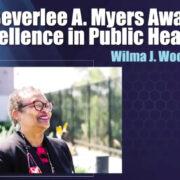Good news for those with reflux esophagitis! A recent open, parallel-group, multicenter randomized controlled study in Sweden (LOTUS – Long-Term Usage of Acid Suppression Versus Anti-reflux Surgery) showed that drug (Esomeprazole) is equally effective, if not more, than surgery for reflux, according to the September 2008 issue of GUT.
What is Reflux Heartburns?
Reflux Heartburns is a milder stage of Reflux Esophagitis, which is an inflammatory condition where Hydrocholoric Acid, normally produced by the stomach to aid in the digestion of food, regurgitate (goes back up) to the lower end of the esophagus (food pipe) which is connected to the stomach. In most cases, the lower esophageal sphincter (“valve”) is incompetent (loose) and allows stomach acid and food to back up to the esophagus, a disease medically known as Gastroesophageal Reflux Disease (GERD).
Why is acid reflux bad?
The stomach mucosa (lining) normally produces the digestive acid and tolerates it much better than the esophagus does, which has a different cell lining that is less resistant to the acid. Reflux of stomach acid into the lower end of the esophagus, therefore, causes esophagitis (irritation, inflammation, swelling, ulceration), which, if allowed to continue untreated, could cause esophageal stricture (scarring) and narrowing, making the channel connecting the food pipe to the stomach too small for food to pass through.
Is this condition common?
Yes, very common. Most patients complain of burning discomfort in the pit of the stomach after meals or at night, while lying down, allowing stomach acid to flow back to the esophagus. Many times the burning disappears when the person gets up. The symptom could also be that of indigestion or “sour stomach.” People who take antacids, like Alka Seltzer, Maalox, Tums, etc. could have GERD.
What are the possible complications of GERD?
Uncomplicated gastroesophageal reflux responds well to medical therapy, and may be tolerated for many years. However, some people on treatment may still develop complications, like esophagitis, esophageal ulcer, hemorrhage, esophageal stricture, and Barrett’s metaplasia (cell changes in the esophagus that could transform to cancer).
What is the first step treatment of GERD?
The initial management of patients with persisting symptoms of GERD consists of (1) Changing diet (avoiding spices, caffeine, chocolate, alcohol, cola drinks), (2) quitting cigarette smoking, (3) avoiding tight, binding clothing, especially after a meal (4) refraining from lying down immediately after a meal, and elevating the head of the bed when lying down to keep gastric acid and contents in the stomach by gravity, and (5) taking medication like esomeprazole under the close supervision of your physician.
Is surgery for GERD passé?
While these promising findings from the clinical research at the Karolinska University Hospital in Huddinge, Sweden, and its partners in the other dedicated centers in 11 European countries, show that GERD responds very well to medical treatment, with even lesser post-op residual symptoms than those treated with surgery (Laparoscopic Anti-Reflux Surgery, LARS, fundoplication), surgery still has a role in managing resistant cases, and those with complications of chronic GERD.
So, what is the final verdict?
In consonance with a caveat in medicine, positive findings like this one will have to be confirmed and reconfirmed by other clinical studies, before it becomes accepted as a standard convention in medical practice. This wise principle in medicine is the reason why advertised anecdotal testimonials about untested herbals and “food supplements” in the market today (claimed to have medicinal values) are considered scientifically baseless and deemed downright dangerous for the consumers.
In the current poisoning catastrophe in China among more than 54,000 infants and children, who developed kidney stones, some dying of renal failure, from consuming milk tainted with the toxic Melamine additive, where this milk and milk products were advertised as excellent source of protein, is a case in point, where extreme greed among unconscionable entrepreneurs and lack of government oversight have brought great harm to the health and life of these innocent victims.
As for this wonderful news about the preference today for pills, instead of surgery, for GERD, these cohort studies are significant enough to warrant further clinical application by the physicians, since H2 blocker (acid pump inhibitor) drugs are presently an integral part of the management for GERD anyway. Any new treatment where drugs are found to be equal to, or better than, surgery is a boon to medical therapeutics, a preferred regimen, and, obviously, better for all of us.
Gastric ulcer used to be a surgical disease, where an operation (to cut a part of the stomach out) was necessary to manage the condition. Today, thanks to the progress in science, it is a medical disease, where effective modern drugs are the accepted mainstay of therapy. Tuberculosis used to kill millions by spreading like wild cancer, destroying most organs in the body, the lungs, bones, brain, liver, kidneys, spleen, etc. Literally acting like cancer. Today, majority of TB is cured by medications alone.
As an eternal optimist and a physician who has great faith in medical science, I look forward to the day when cancers could be cured by medications, or better yet, prevented by a healthy lifestyle, or by vaccine, like the Gardasil vaccine today, recommended for young girls and boys (pre-teens and older), which is highly (more than 99%) effective in blocking (pre-empting) the development of cervical cancer.
That day will surely come. I don’t know when, but hopefully, for the sake of mankind, it would be soon.
Note: All information and others published in this column, are compiled in Lets Stop “Killing” Our Children, by Philip Chua MD. It is available online at amazon.com and barnesANDnoble.com
***
Philip S. Chua, MD, FACS, FPCS, Cardiac Surgeon Emeritus in Northwest Indiana and chairman of cardiac surgery from 1997 to 2010 at Cebu Doctors University Hospital, where he holds the title of Physician Emeritus in Surgery, is based in Las Vegas, Nevada. He is a Fellow of the American College of Surgeons, the Philippine College of Surgeons, and the Denton A. Cooley Cardiovascular Surgical Society. He is the chairman of the Filipino United Network – USA, a 501(c)(3) humanitarian foundation in the United States. Email:[email protected]





